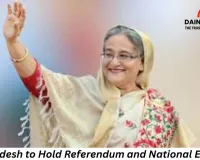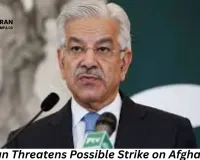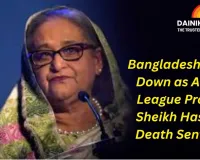US Vice President JD Vance Criticizes Low-Wage Foreign Workers as Trump Moves to Curtail H-1B Visas
Digital Desk

US Vice President JD Vance sparked controversy by describing foreign employees as “low-wage servants” and asserting that America “doesn’t need them.” His remarks, made amid ongoing debates over H-1B visa policies, target Democratic approaches that, according to him, prioritize bringing in low-paid immigrant labor, potentially affecting American wages and employment opportunities.
Vance contrasted this with former President Donald Trump’s policies, which he claimed strengthen domestic workers through technology rather than foreign labor. However, his stance diverges from Trump’s recent comments acknowledging the need for specialized foreign talent. Highlighting a South Korean battery plant in Georgia employing 500–600 experts, Trump emphasized that certain complex and high-risk roles require skills not readily available in the US workforce.
The Republican Party is now considering legislation to drastically reduce H-1B visas, limiting issuance to 10,000 annually over the next decade, primarily for medical professionals. Currently, 85,000 H-1B visas are issued each year, with nearly 70% going to Indian workers. Earlier this year, the Trump administration increased H-1B application fees from $1,000 to $100,000, signaling a tougher regulatory environment.
While the administration targets skilled labor, Trump has softened restrictions on foreign students, stressing their contribution to US universities academically and financially. A prior suspension of F, M, and J visa interviewsaimed at stricter vetting and social media scrutiny has resumed, though with more stringent procedures. The combined policy changes have led to a 70% decline in Indian students enrolling in American institutions, prompting many to explore alternatives in other countries.
Analysts suggest these measures could reshape the US labor market and education sector, balancing domestic job protection with the need for global talent in specialized fields, while potentially straining US-India academic and professional exchanges.











